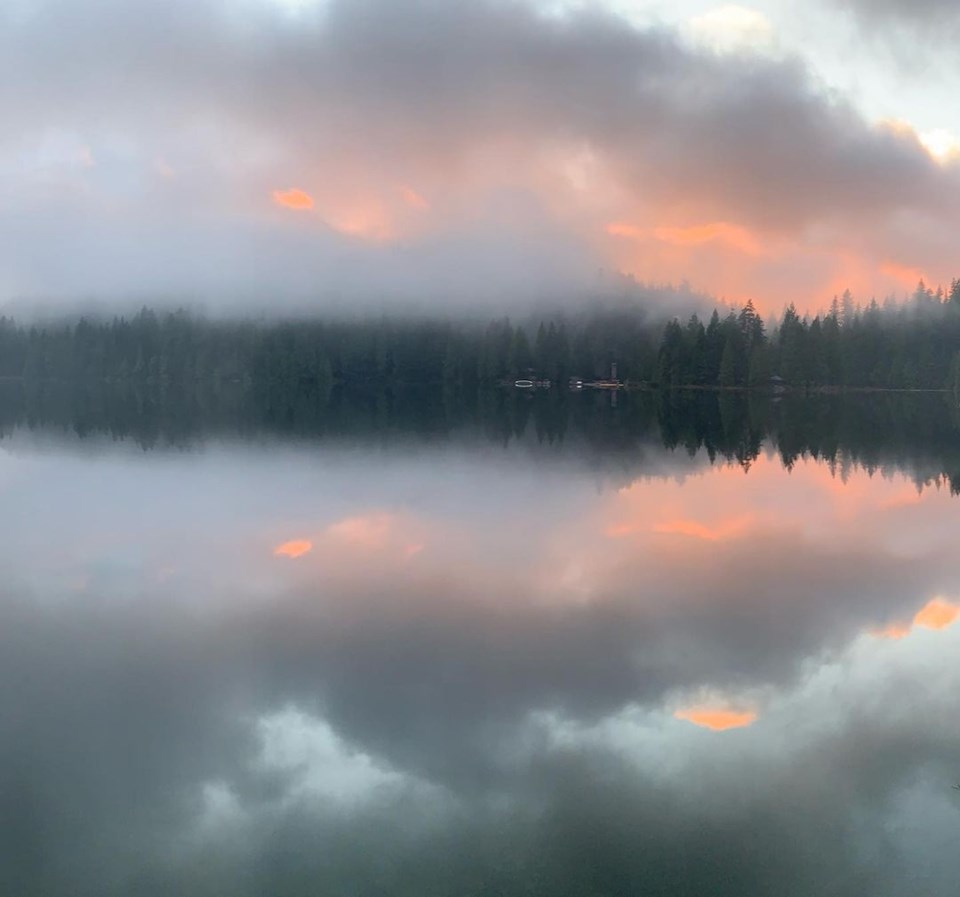Beach days, picnics and summer hikes are a distant memory, but winter weather hasn’t kept crowds from flocking to three Tri-City regional parks in record visitor numbers.
“It’s unheard of. We’ve never seen this before,” said John McEwen, Anmore mayor and the chair of Metro Vancouver’s Regional Parks Committee.
Belcarra Regional Park saw visits climb to 67,200 in January 2021, nearly triple the number recorded the previous January. After the Delta South‐Surrey Greenway, that's the second biggest monthly jump in park visits across the entire Metro region, and outpaces the park system’s overall spike in traffic, which doubled to over 1.2 million monthly visits this January compared to last year.
Monthly visits to Colony Farm Regional Park in Coquitlam, meanwhile, more than doubled over the same period, growing to 30,100 from 14,200 in January of last year. And Minnekhada Regional Park saw a similar spike in visitors, doubling to 14,500 monthly visitors year-over-year.
“That trend we saw in 2020 just seems to kind of continue,” said executive director of the Outdoor Recreation Council of BC Louise Pedersen.
“People are seeking respite. They want to get outside and follow the guidelines of staying local — and thank goodness we have a regional park system in Metro Vancouver that managed to stay open.”
METRO PLANS TO EXPAND PARKS
With no sign record park visitations will dip, Metro Vancouver continues to move ahead with several park expansion plans across the region.
That includes linking Coquitlam, New Westminster, Burnaby and downtown Vancouver with a green belt that would allow people another choice to get out of their cars.
“The problem we’re being faced with is we’re adding all this population to the Vancouver core and they’re not adding any green space,” said McEwen. “We need to start protecting more land.”
One notable expansion of the Metro park system includes a freshwater marsh northeast of Coquitlam now known as Widgeon Marsh Regional Reserve.
The swath of bogs, forest, grasses and waterways make up part of the largest freshwater marsh in southwest B.C., but it’s currently shut off to the public due to a lack of access and environmental concerns. Metro Vancouver is planning to begin installing basic amenities like parking, trails and pit toilets into 2022.
And if a current draft park management plan goes ahead, domestic animals like dogs and motorized activities would be banned in the park, and only passive recreation like paddling, cycling and hiking, or the pursuits of a naturalist like birdwatching and botanizing will be permitted.
“This area of Widgeon could be our next Stanley Park a hundred years from now,” said McEwen.
But in the short term, he said, “The big challenge with all the regional parks is the traffic,” a fact made clear at Belcarra Regional Park over the summer, when Port Moody and the Village of Belcarra banned parking along several roadsides in the area to limit crowds.
Solutions are in the works. McEwen said planners are already working with the city of Coquitlam to manage vehicle traffic flow in and out of Minnekhada Regional Park. Once Widgeon opens, they are looking for ways to get people to the park without their car.
OPEN COQUITLAM PARK AND THIN CROWDS, SAY RECREATION GROUPS
The ongoing crowding of regional parks has prompted some outdoor groups to renew their calls for the province and Metro park authorities to coordinate the opening up of parkland across the Lower Mainland.
While the Metro park system remains relatively well-funded, the Outdoor Recreation Council’s Pedersen said provincial parks have suffered from years of funding shortfalls, placing an unfair burden on other local park systems.
Pedersen’s group was among 25 tourism and recreation organizations which sent a letter last week to B.C. Premier John Horgan calling on his government to boost funding to provincial parks to $100 million from the roughly $40 million it now receives.
The money, states the letter, would go toward acquiring new land, supporting park operations and would even serve to “spur our economic recovery” through new local jobs in tourism and the service sector as B.C. emerges from the pandemic.
So far, the coalition has yet to receive a response.
“It just seems like such an opportune time to create a plan, to create a roadmap,” said Pedersen. “It makes sense to look at the park system as a whole.”
That’s especially important in the case of Widgeon Marsh, which sits adjacent to Pinecone Burke Provincial Park.
Opening access to the marshland will also inevitably create a pipeline into nearby provincial park, a BC Park that has been effectively closed to the public as it remains without its own management plan.
“We’re going to be basically developing a park right next to it, that’s going to be offering unprecedented access to it,” said McEwen of Widgeon, admitting it will pose some challenges for local search and rescue groups if traffic grows and Pinecone Burke remains undeveloped.
Pinecone Burke Provincial Park has been without a park management plan since the land was set aside in the mid-90s.
Covering an area nearly 100-times the size of Stanley Park, Pinecone Burke encompasses huge swaths of old-growth forest, lakes and mountain streams, as well as pristine alpine terrain. But without park infrastructure like toilets, maps and signage, trail upkeep and a place to park, only the most diehard recreationalists can explore it safely.
Still the Coquitlam area park could also offer a massive opportunity to thin out crowds in a region expected to grow by a million people over the next 30 years.
“When we’re seeing a number like this, it really should send a message to BC parks: ‘Let’s get on with it,” said Pedersen.





